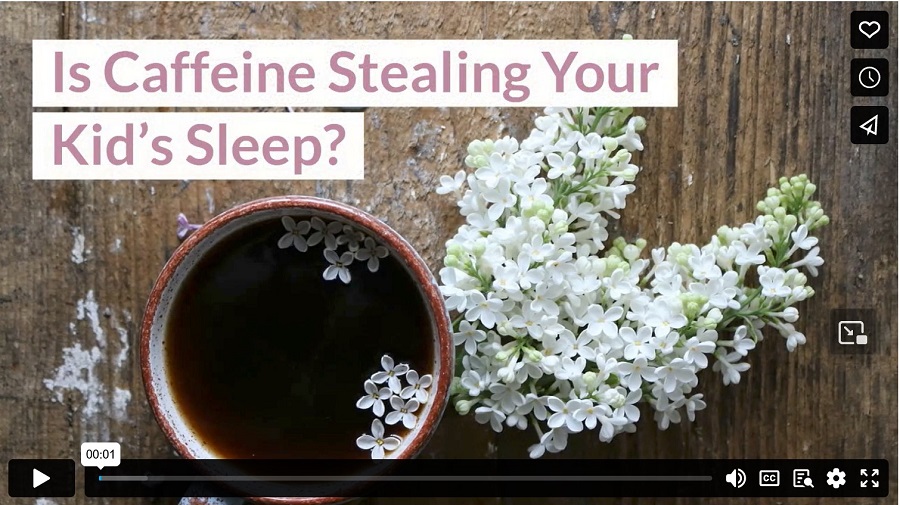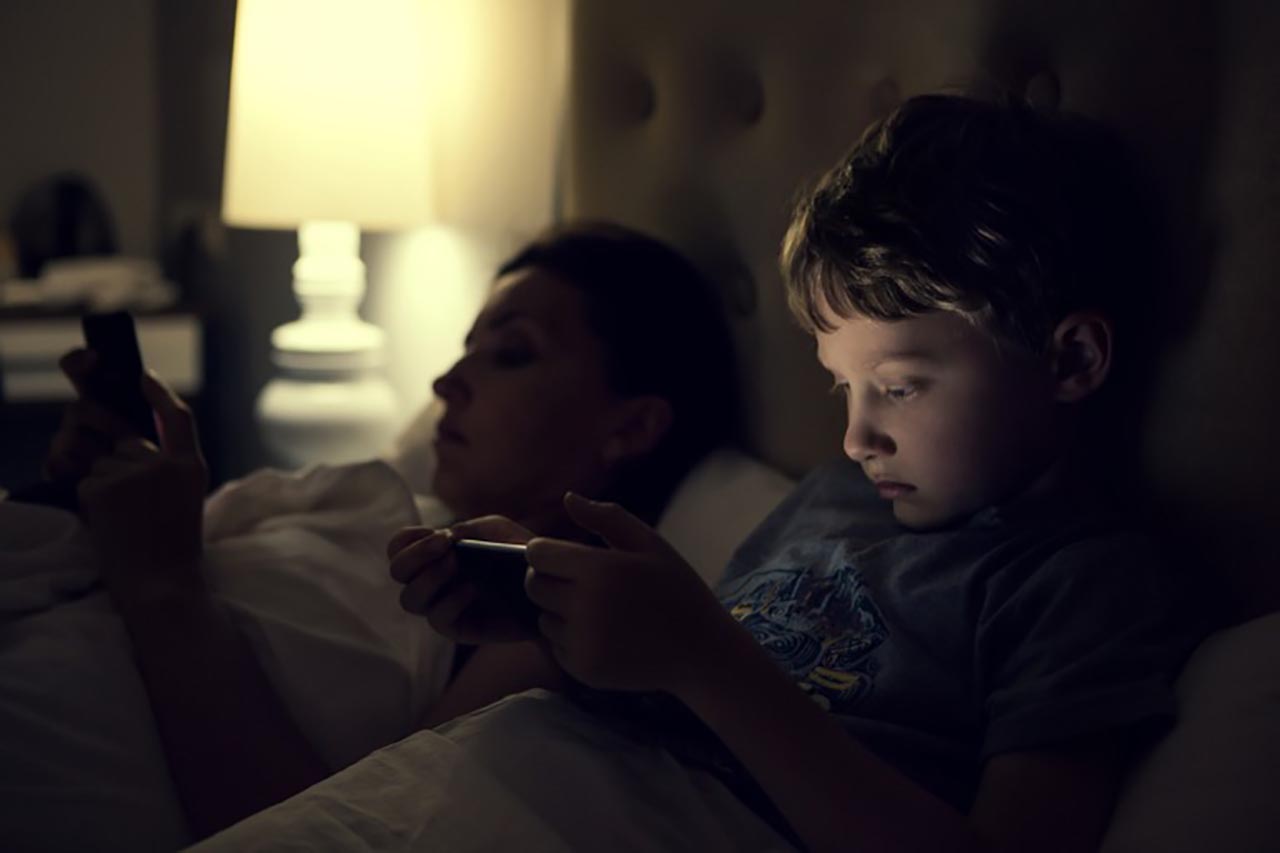Like it or not, we live in a world where it’s cheaper to get a 32-ounce fountain drink than a bottled water.
There’s something to be said for having a cold, bubbling drink in one hand on a hot day, especially if there’s a little caffeine to help you get your to-do’s done. But while caffeinated beverages are great for giving you that extra boost during the day, they can cause a lot of trouble at bedtime.
Caffeine’s Effect on Young Bodies
There isn’t much research on caffeine’s impact on child development, but the general consensus is to limit caffeine intake as much as possible. One large study measured the cognitive function of almost 12,000 nine- and ten-year-olds. It found that kids who drank significant amounts of caffeine daily did worse in all seven reading and cognitive categories compared to kids who didn’t consume caffeine.
Other studies have found that kids who consume large amounts of caffeine tend to struggle more with anxiety, increased heart rate, acid reflux, and sleep problems. When you factor in the large amounts of sugar that accompanies most caffeinated products, you also could have problems with childhood obesity.
Sources of Hidden Stimulants
One of the most well-known stimulants today is caffeine, and it’s just about everywhere these days. Just look around the next time you’re standing in the check-out line at the grocery store. Anything that says “energy” likely means that there are significant amounts of caffeine. Chewing gum, candy bars, granola bars, cookies, and drinks (including water!) are now loaded with caffeine to give us a boost to finish our busy days.
Even things that tout “increased energy” with “no caffeine” are pumped full of other stimulants that can keep you awake longer. Ginseng, guarana, taurine, and some B-complex vitamins can have the same stimulating effects as caffeine.
If your kid won’t sleep through the night, they may have caffeine-influenced insomnia. Just look at this list of food products that have hidden caffeine:
- Iced tea: A true southern classic, iced tea (both in sweet and unsweet varieties) has about 2.5 mg of caffeine per fluid ounce. That means an eight-ounce glass with dinner packs in about 20 mg of caffeine. To put that in perspective, the average eight-ounce coffee has about 90 mg of caffeine.
- Soft drinks: Soft drinks not only have a lot of sugar but can also be full of caffeine. For example, a can of Coke has 34 mg of caffeine, Mountain Dew has 54 mg, Pepsi has 37 mg, and Dr. Pepper has 41 mg. Coupled with the sugar, your child doesn’t stand a chance at bedtime.
- Granola bars: More and more granola bars have added energy-boosting ingredients these days. Pay careful attention to granola bars marketed toward active lifestyles, as some can have over 60 mg of caffeine per bar!
- Dark chocolate: Dark chocolate is well-known for having a lot of health benefits, but it can also have a ton of caffeine. In fact, one regular bar of dark chocolate can have almost as much caffeine as a cup of coffee.
- Energy drinks: Ok, energy drinks having caffeine isn’t a surprise, but it may blow your mind to know how much caffeine is in one. A Red Bull, for instance, has about as much caffeine as a cup of coffee. A Bang energy drink has over three times that amount! The problem is that energy drinks come in brightly-colored cans that appeal to kids. One sip of an energy drink for a kid can blow sleep right out of the water.
Examine Your Intake
You’ve probably seen the memes and coffee mugs decorated with these cutesy sayings:
- “I don’t need an inspirational quote. I need coffee.”
- “Hocus Pocus – I need coffee to focus!”
- “I only need coffee on days ending with ‘Y’”
- “I will start working when my coffee does!”
There’s nothing inherently wrong with enjoying a caffeinated food or beverage, but if you’re constantly saying, “I need coffee!” like a zombie, you are sending a message to your kid. That message translates to “Drinking caffeine is the only way to function.” Limiting your child’s caffeine intake doesn’t actually start when you offer them water over a can of soda – it starts with how you treat caffeine.
Set the Example
Setting a good example for your child by drinking water instead of a caffeinated beverage can be easier said than done. As with all healthy habits, sometimes it means taking baby steps and switching out one Coke per day for a bottle of water or a dark chocolate bar for an apple. When you talk to your child about why you’re making healthy substitutions, be factual and reassuring, and don’t complain about how much you miss x, y, and z. Being consistent and straightforward can bring about healthy changes in both of you.
Find Alternative Ways to Increase Energy
There are a lot of different ways to boost your energy that don’t require stimulants at all. Eating fruits and vegetables, exercising daily, reducing sugar, and drinking plenty of water are healthy choices that will yield more energy during the day. Not only that, but incorporating those habits into your life will help you both sleep better at night.
Caffeine and other natural stimulants are everywhere these days, which might be why your child won’t sleep through the night. If you suspect caffeine is the culprit, start by keeping an eye on what things your child consumes throughout the day and make any necessary adjustments. And as always, if you need any additional support or advice, don’t hesitate to reach out to one of our child sleep coaches today.
Infographic
A considerable study revealed that children who drank an excessive quantity of coffee daily functioned more catastrophically in each of the seven reading and cognitive categories. These days, caffeine and other natural stimulants are widely available, which may be the reason your youngster is having trouble getting to sleep at night. Start by watching what your child eats and making any necessary modifications.

Video



